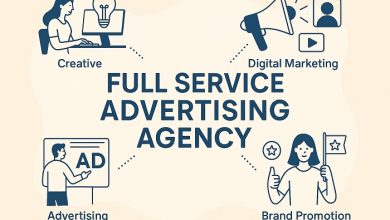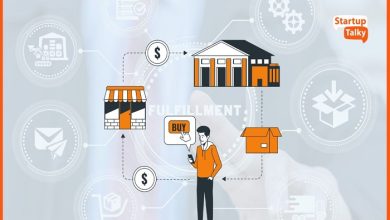
Businesses have a lot more responsibility today than in previous years to attract more customers and meet the ever-changing demands of the modern consumer. Many businesses have to create products and services that speak to modern consumers. But this isn’t only what it takes for a business to succeed in today’s crowded market. Businesses also have to showcase their values and what they stand for, showing care for customers and employees and creating an honest foundation that aligns with the modern consumer.
A huge part of the core values that modern consumers are looking for in businesses is sustainability. This isn’t just a word that carries no meaning. It holds a lot of power when backed by action that shows consumers a business is serious about the words they say. Consumers are becoming more and more eco-conscious in their daily lives, with the immense light that has been shed about our impact on the environment. People want to help save the planet and use greener products in their lives to cut their emissions and protect Earth. Businesses need to seriously think about sustainability to keep up with these demands and thrive in a crowded market. Alongside this, businesses need to show that they care and want to make a difference to the planet. Doing this involves cutting their emissions down by any means possible. Building a greener business ensures that you help the environment and strengthen your brand, reduce costs, and attract a loyal customer base that values responsibility over convenience.
Understanding the Value of Sustainability
Before you can make your business greener, you need to understand why it matters to be sustainable. Of course, the first thing that comes to mind is your business’s public image to attract customers and achieve success. But you need to understand the importance of sustainability on a deeper level that goes beyond this. If your business is sustainable, you can easily reduce waste, conserve resources, and operate with long-term viability in mind. This helps to encourage efficiency and innovation that can lead to reduced operational expenses and improved productivity. All of these are critical to succeed in the busy market and help your business grow. For example, switching to renewable energy or optimizing supply chains reduces a company’s carbon footprint and protects it from expensive energy prices and material shortages.
Alongside this, sustainability can build resilience for your business. If you prioritize ethical sourcing, eco-friendly materials, and community engagement, your business will become better equipped to face the challenges of climate change. Your business can also keep up with the demands of modern consumers and stay ahead of changing market expectations.
Rethinking Operations for Long-Term Change
Once you understand the importance of going green, you can start to look at your existing operations and how you can change them for the better. Think about sustainability first and how you can integrate it into your operations to achieve long-term change. Every part of the way your business works provides you with an opportunity for improvement, especially when you can see that your existing operations are potentially damaging your path to success or don’t fit into what modern consumers want. To begin this, you need to do an honest assessment of your current practices. Are there areas where waste can be reduced, energy consumption lowered, or materials sourced more responsibly? Even small changes, such as using digital documentation instead of printed paper or upgrading to energy-efficient lighting, can make a noticeable difference over time.
Being more sustainable should also be worked into your logistics and supply chains. Choosing durable and reusable materials can significantly reduce your environmental impact. For instance, many forward-thinking companies are turning to plastic pallets as part of their greener business models. They last longer than traditional wooden options and can be recycled at the end of their lifecycle, helping to minimize waste and promote circular economy principles.
Building a Culture of Environmental Responsibility
The best way your business can thrive with sustainability is by including the whole business and creating a culture of environmental responsibility. Your business can’t be greener by relying on leadership alone. You need everyone in your company to be responsible for change to achieve a greener company that succeeds. If you create an environmentally conscious culture, you can strengthen teams and improve productivity because everyone is fully engaged and on the same page across every level of your organization. You should encourage employees to participate in sustainability initiatives, from reducing office energy use to organizing recycling programs or community clean-ups. When your team understands the importance of their contributions, they become ambassadors for your company’s values – which reflects positively on consumers as they can clearly see the action you have taken to back your sustainability values.
Transparency is also key. Share your sustainability goals, progress, and challenges openly with your stakeholders. Consumers today appreciate honesty and are more likely to support brands that show genuine commitment rather than perfection. Consider publishing annual sustainability reports or using your social media platforms to highlight your achievements and upcoming initiatives.
Leveraging Technology for a Greener Future
You should also make use of modern technology. There are so many powerful tools readily available to use that help support your business’s sustainable growth. Using tools like smart energy management systems, cloud computing, and data analytics can all help track and reduce your environmental footprint. Digital platforms can also get your company working together to create smoother operations. They can promote remote collaboration, which cuts down on business travel and office resource consumption. Likewise, innovations in automation and artificial intelligence can optimize production processes, ensuring that resources are used more efficiently.
Even small businesses can make the most out of these tools. There are many cloud-based inventory systems that are available to companies of all sizes, helping to reduce the need for physical storage and paperwork. Installing renewable energy solutions, like rooftop solar, can significantly lower utility bills.
Partnering with Like-Minded Businesses
Sustainability thrives when collaboration replaces competition. Partnering with suppliers, distributors, and service providers that share your environmental values ensures consistency across the entire business. This might mean sourcing from ethical producers, using eco-friendly packaging, or choosing logistics partners that are committed to carbon reduction.
By working together, businesses can share resources, exchange knowledge, and create scalable solutions that have a much larger positive impact. Collaboration also improves credibility, showing your customers that your sustainability claims are backed by actual effort.
A Greener Path Forward
Building a greener business is about more than compliance or reputation. It’s about purpose. It represents a commitment to operating responsibly and leaving a positive mark on the world. The journey toward sustainability is a gradual one, but every small step contributes to a larger transformation. In the end, the most successful companies will be those that prove growth and environmental stewardship can go hand in hand.



